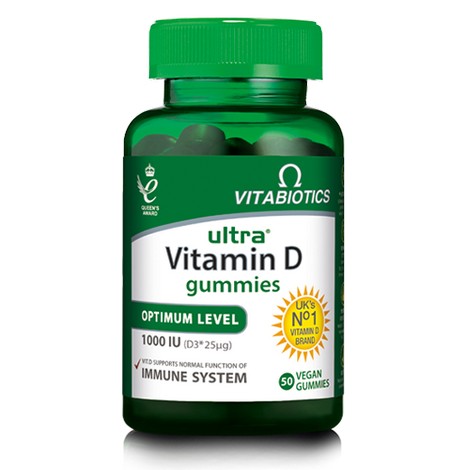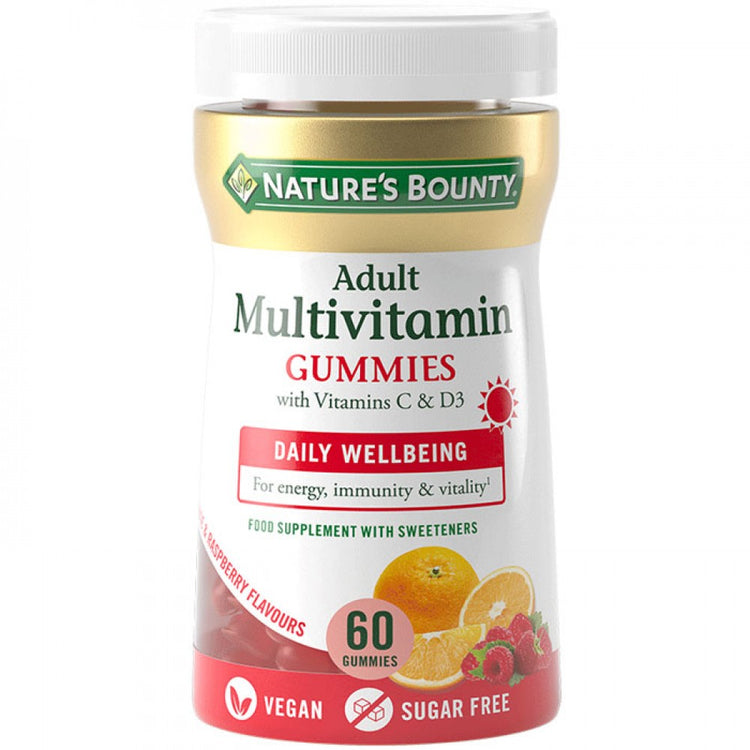Coronavirus and your immune system: our tips on protecting yourself
The outbreak of Coronavirus over the past few months has highlighted the importance of people taking extra precautions with health and hygiene. It has also reinforced the importance of boosting the immune system to help avoid viral infections, including COVID-19.
Following the outbreak of any new virus, it is important to take care of yourself, including avoiding any added stress. A good way to do this is by understanding how the immune system works and how we can prevent viruses from spreading.
Click on the links below to jump to the relevant section:
- What happens when a virus tries to enter the body?
- What are the symptoms of Coronavirus?
- How is COVID-19 spread?
- Boosting your immune system: our guidance
- Go for immune system boosting foods and vitamins
- Practice good hygiene
- What precautions should I take if I am in an at-risk group?
What happens when a virus tries to enter the body?
The body has various strategies for stopping a virus from entering. The immune system is the major player for safeguarding against infections, but it’s not the only barrier to ill health:
Skin -During transmission, skin acts as the primary boundary between germs and your body. As a waterproof barrier, it secretes oil that also has bacteria-killing properties.
Mucus -Mucous membranes (found in, among other places, the nose) produce sticky mucus that traps bacteria and other pathogens.
Microbiome -The microbiome is the genetic material of all the microbes that live throughout our bodies. Some of these helpful bugs make antimicrobial chemicals and compete with pathogens for food and space.
White blood cells or immune cells -If pathogens manage to get through the body’s skin and mucous membranes, they then encounter white blood cells in the bloodstream.
Epithelial cells -These cells make antimicrobial products including antiviral compounds. The cells come from the body’s surfaces, including skin, urinary tract, blood vessels and organs.

What are the symptoms of Coronavirus?
The HSE states the following as the most common symptoms of Covid-19:
- A cough — this can be any kind of cough, not just dry
- Shortness of breath
- Breathing difficulties
- Fever (high temperature)
Coronavirus has an incubation period of anywhere from 2-14 days and it can take up to 14 days for symptoms of Coronavirus to appear.
How is COVID-19 spread?
Coronavirus is spread in sneeze or cough droplets. To infect you, it has to get from an infected person's nose or mouth into your eyes, nose or mouth. This can be direct or indirect (on hands, objects, surfaces). Keep this in mind. It will help you remember all the things you need to do to protect yourself and others from the virus.
Boosting your immune system: our guidance
Strengthening the immune system can help you avoid the Coronavirus infection as well as other types of cold and flu. There is no better way to boost your immune system than eating a well-balanced diet, reducing stress and getting adequate sleep. You should always bear in mind that nothing should replace these healthy lifestyle habits. Most healthy adults need between 7 to 9 hours sleep per night, with most adults above the age of 65 still needing at least 7 hours of sleep. You can read more about how much sleep your age group requires here
The following is a list of tips for boosting the immune system:
Go for immune system boosting foods and vitamins
You should already follow a balanced diet that provides the essential vitamins. We only recommend taking vitamins if you are not eating a well-balanced diet, eliminating stress or getting enough sleep. Supplements can ensure you are getting the right vitamins and minerals if you struggle to lead a healthy lifestyle.
If you don’t already follow a healthy, balanced diet, the following vitamins can help boost your immune system:
Vitamin D
Vitamin D is used by macrophages, which are large phagocytic cells found in the organs of the immune system. Vitamin D can get quite low in the winter for people living in the Ireland and other Northern European countries. One popular theory suggests that the reason there is a spike in colds and flu over the winter months is because many of us are deficient in vitamin D.
What foods contain vitamin D?
Vitamin D is known as the “sunshine vitamin” as it is produced by the body as a response to the skin’s exposure to sunlight. Foods that contain vitamin D include egg yolks, fish, cod liver oil. Most milk and some cereals are also certified with vitamin D, as are various brands of cheese, soy beverages, orange juice and yoghurt.

Vitamin C
Vitamin C supports the body’s immune system by protecting the integrity of cells, which affects the production and function of white blood cells. Vitamin C is arguably the vitamin most often associated with boosting the immune system.
What foods contain vitamin C?
Vitamin C can be found in fresh fruits including strawberries, oranges, lemons and kiwi. You can also find vitamin C in various vegetables, including spinach, kale, broccoli and sprouts.

Vitamin A
Vitamin A is known as an anti-inflammation vitamin because of its critical role in enhancing immune function. A deficiency of vitamin A is associated with increased susceptibility to infectious diseases.
What foods contain vitamin A?
Preformed vitamin A is only found in animal-sourced products. This includes meat, fish, poultry and dairy foods. Provitamin A is found in plant-based foods such as fruits and vegetables.

Vitamin B6
Vitamin B6 supports biochemical reactions in the immune system. The vitamin has been proven to have a beneficial impact on immune responses in ill patients.
What foods contain vitamin B6?
The vitamin can be found in chicken and cold-water fish, including salmon and tuna.

Vitamin E
Vitamin E is an antioxidant that can help the body fight off infection. Researchers have shown that higher doses of vitamin E can mitigate the stress on immune cells.
What foods contain vitamin E?
Vitamin E is found in vegetable oils, seeds, nuts and green leafy vegetables. It can also be found in some fortified breakfast cereals, fruit juices, spreads and margarine.

Selenium
Selenium is an antioxidant that helps boosts the body’s defences against bacteria and viruses.
What foods contain Selenium?
Selenium is particularly high in brazil nuts, eggs, sunflower seeds, brown rice and pasta.

Zinc
Zinc can help to reduce the frequency of infections. It can also reduce the duration and severity of the common cold and other viruses when taken within 24 hours of onset. It metabolises different nutrients, maintaining the immune system and repairing body tissues.
What foods contain Zinc?
Zinc is particularly high in red meat, shellfish, legumes, seeds, dairy and nuts.
Immune boosting vitamins from McCabes
The following vitamins are only recommended for people who struggle to eat a balanced diet, eliminate stress or get adequate sleep. Whilst vitamins can help increase your health, you should never use supplements or drinks in replacement of following a healthy diet and lifestyle.


€16.59€7.30
Shop Vitabiotics Ultra Vitamin D GummiesShop Emergen-C Orange Sachets


€15.55€12.50
Shop Natures Aid Selenium, Zinc, Vits A, C & E Shop Nature’s Bounty Adult Multivitamins
Although not a cure for viruses, nasal sprays and painkillers such as ibuprofen and paracetamol can provide relief from some cold symptoms. You should, however, take into account the maximum dosage and guidelines before taking any painkillers. You can read more about paracetamol here.
Practice good hygiene
Maintaining good hygiene should be practiced alongside ensuring you get adequate sleep, a balanced diet and eliminate stress. With the outbreak of Covid-19, it is important to remember the importance of good hygiene and ensure your surroundings are as clean as they can be. Make sure you follow the recommended hygiene tips:
Ensure you are washing your hands frequently for at least 20 seconds with soap and water frequently. 20 seconds of hand washing provides enough time to wash the whole surface area of your hand, including the front, palm, and back of your hand. You should also ensure to wash the spaces between the fingers and thumb and between all the fingers. If soap and water aren’t accessible, alcohol-based hand sanitisers containing at least 60% alcohol can help reduce spread of infection.

Cough into a tissue away from others.To avoid spreading your germs, cough or sneeze into a tissue, or into your elbow. Never cough into your hand, as this makes it much easier to transfer germs onto someone else.
Always put any used tissues into the bin.
Frequently touched objects and services should be cleaned and disinfected frequently.
Avoid close contact with people who are not well.
Avoid touching the face, especially with unwashed hands.While touching the face can be a habit we don’t even think about, this is, unfortunately, a great way for viruses to enter the body.
What is social distancing?
Social distancing assists in slowing down the spread of coronavirus. Through minimising contact between potentially infected individuals and healthy individuals, we can keep more people safe from the virus.
Social distancing involves keeping a space of 2 metres (6.5 feet) between you and other individuals. You should not shake hands or make close contact with others.
What precautions should I take if I am in an at-risk category?
Certain groups of people will be at risk of a serious illness if they catch coronavirus. However, we do not think these groups have a higher risk of catching coronavirus.
You are more at risk of serious illness if you catch coronavirus and you:
- have a long-term medical condition – for example, heart disease, lung disease, diabetes, cancer or high blood pressure
- are 60 years of age and over
- have a weak immune system (immunosuppressed)
What can cause a weakened immune system?
There are many things, including certain treatments and conditions that can cause a weak immune system.
These things include:
- Treatment for autoimmune diseases, such as rheumatoid arthritis, lupus, multiple sclerosis (MS) and inflammatory bowel diseases
- Cancer treatment
- HIV
- Having an organ transplant or a bone-marrow transplant
- Lung viruses can cause severe illness in people who have a weak immune system. This is likely to be a similar risk with coronavirus. This is why you should take extra care if you have a weak immune system.
You can read about the precautions you should take if you are in an at-risk group here.

